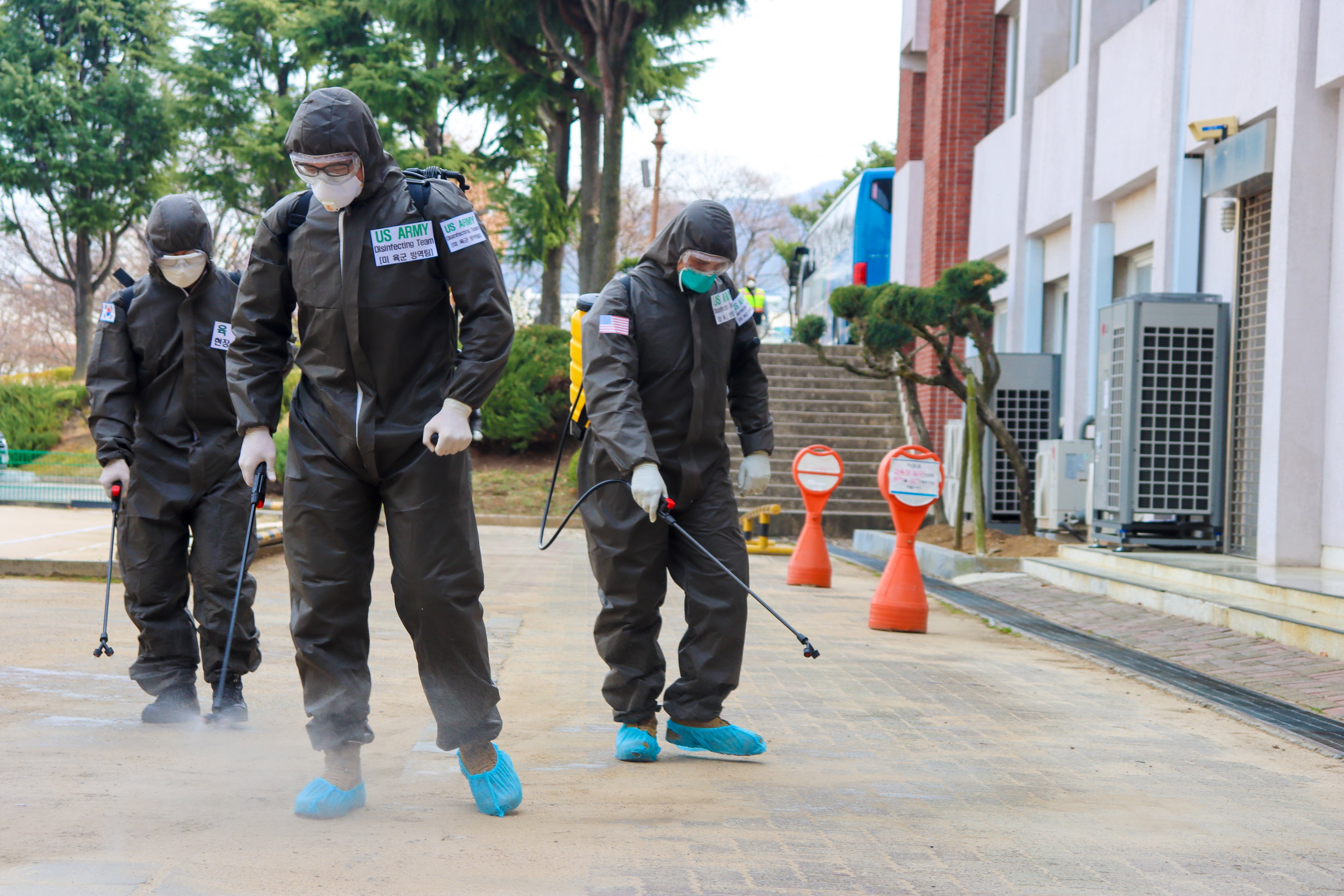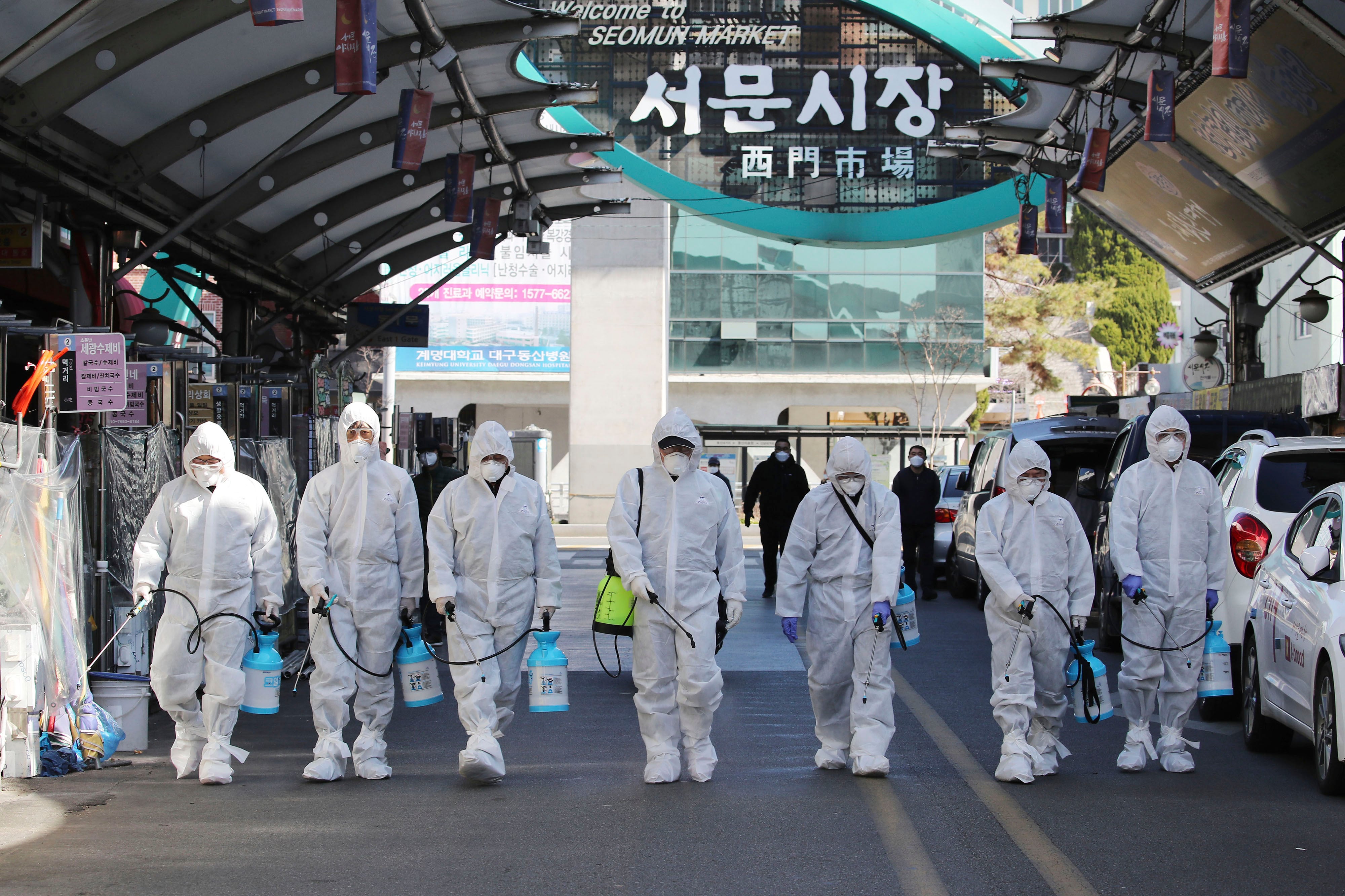Citing aggressive measures taken to minimize the spread of the COVID-19 virus, U.S. Forces-Korea, USFK, leadership lifted work restrictions Monday in the city of Cheonan — a place designated a virus hotspot just less than a week ago.
Due to the decline in COVID-19 cases in Cheonan, USFK has removed travel restrictions for the area and has asked non-essential personnel to contact their commands to discuss returning to work, according command social media posts.
The approach that led to those moves provides lessons learned for the U.S. as it battles the coronavirus pandemic, Army leaders say.
RELATED

While the risk remains high for U.S. troops, family members and other Americans in South Korea, the number of new cases in hard-hit areas has declined over the past week, with cities like Daegu reporting fewer than 100 new cases a day on Sunday and Monday.
The reports prompted U.S. Garrison Daegu to tweet “WE ARE WINNING!”
Earlier this month, USFK posts embraced measures that slashed the number of visitors to installations by 60 percent, limiting service member travel to grocery shopping, medical appointments and pharmacy runs and ordering non-essential personnel to stay home.
USFK drafted a “COVID-19 Response #KILLTheVirus” playbook that instructed commanders on communication plans, travel restrictions, event cancellations, school closures, quarantines, work stoppages, training and recreation restrictions, health screenings, social distancing, house cleaning and more.
As of Monday, number of confirmed cases of COVID-19 in South Korea was 8,236. The number of cases among U.S. personnel, military dependents and Defense Department civilian employees has remained at nine for nearly a week.
“We've approached it similarly to how we operate in combat. We apply speed and violence of action on contact. We apply analytical tools and predictive analysis, and provide daily update briefings to me and component commanders so we maintain shared situational awareness,” Army Gen. Robert Abrams, U.S. Forces-Korea commanding general said Friday during a briefing at the Pentagon.
RELATED

According to Abrams, in late February, the Republic of Korea was conducting 5,000 coronavirus tests a day; now they can test at least 18,000 a day and have tested more than 189,000 Koreans.
“There's over 100 test stations throughout the Republic of Korea. They've got drive-in testing centers. [Testing] was a limiting factor at the beginning but it’s no longer,” he said.
U.S. Forces Korea has tested 145 Defense Department affiliated personnel, including active-duty, dependents, employees and contractors, Abrams added.
While he said South Korea is “not out of the woods yet,” everyone has been “100 percent compliant,” which has contributed greatly to reducing the impact of the virus on personnel and families.
“I am extraordinarily proud of our USFK staff, all of our component commands and subordinates, all of our service members, our amazing families and employees who are maintaining their vigilance and resiliency during this time,” he said.
Maj. Gen. Patrick Donohoe, deputy commanding general, operations, 8th Army, tweeted there are lessons to be learned from US Forces-Korea.
“America — here is what we’ve learned in Korea. To #KILLtheVirus you will need to change behavior. Limit interactions, elbow bumps, go straight home, wash your hands. If sickly, leave quickly. If tested-quarantine. Its not panic its prudent. And u dont need a lifetime supply of TP,” he tweeted.
On Tuesday, President Donald Trump gave broader audience to U.S. Forces-Korea’s #KilltheVirus hashtag, using it in a tweet about coordination between federal state and local officials.
U.S. Army Garrison Daegu couldn’t have been more delighted.
Patricia Kime is a senior writer covering military and veterans health care, medicine and personnel issues.




